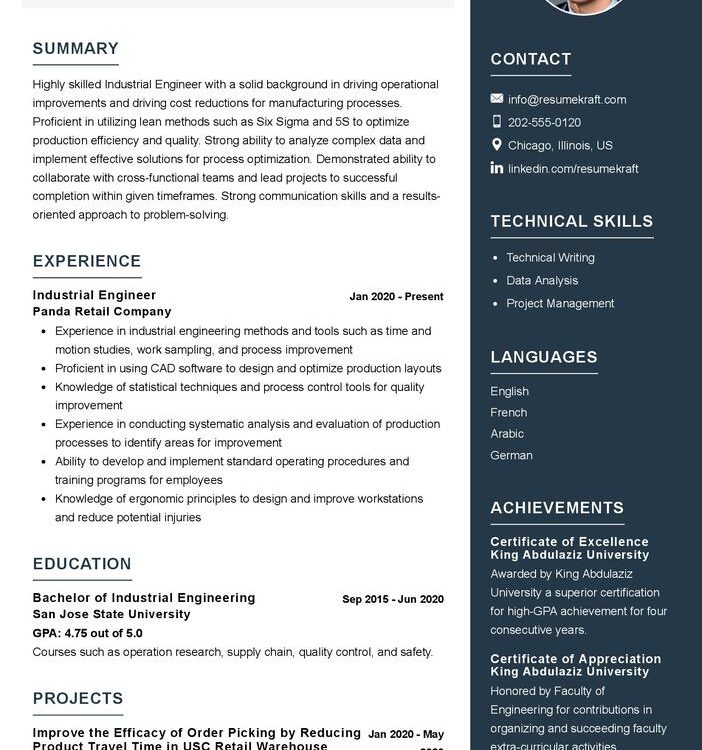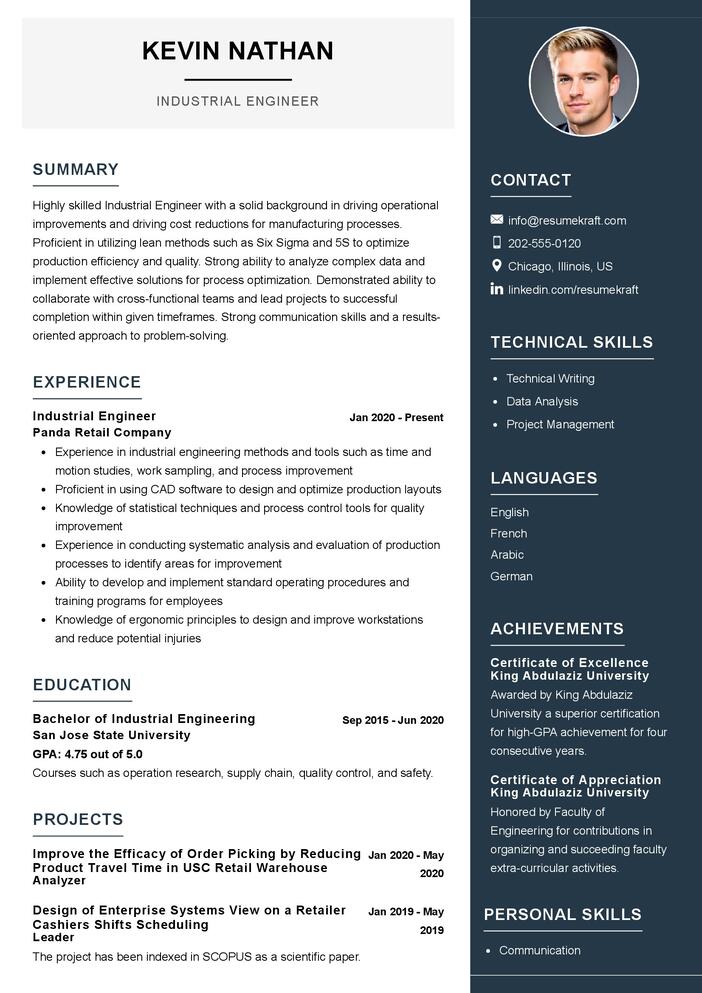Exploring the Role of an Industrial Engineer
In today’s dynamic industrial landscape, the role of an Industrial Engineer is crucial in optimizing processes, improving efficiency, and ensuring the seamless operation of manufacturing and production environments. This article delves into the multifaceted responsibilities, job requirements, and skills essential for a successful career as an Industrial Engineer.
What is the Role of an Industrial Engineer?
An Industrial Engineer plays a pivotal role in enhancing productivity and efficiency in various industries. This position involves a combination of analytical thinking, problem-solving skills, and a deep understanding of industrial processes. Let’s take a closer look at the diverse responsibilities of an Industrial Engineer:
- Conducting time and motion studies to identify areas for process improvement.
- Designing and implementing production systems that maximize output while minimizing costs.
- Analyzing data to identify bottlenecks and inefficiencies in manufacturing processes.
- Collaborating with cross-functional teams to streamline workflows and optimize resource utilization.
- Developing and implementing quality control procedures to ensure product consistency.
- Utilizing statistical methods to analyze production data and make informed decisions for process improvement.
- Ensuring compliance with industry standards and regulations to maintain a safe and efficient working environment.
The role of an Industrial Engineer is dynamic, requiring adaptability and a continuous pursuit of optimization.
What are the Industrial Engineer Job Requirements?
Becoming an Industrial Engineer involves meeting specific educational and skill-based requirements. Let’s explore the prerequisites that pave the way for a successful career in this field:
- A Bachelor’s or Master’s degree in Industrial Engineering or a related field, providing a solid foundation in engineering principles.
- Proficiency in computer-aided design (CAD) and other engineering software tools.
- Strong analytical and mathematical skills, essential for data analysis and process optimization.
- Effective communication skills to collaborate with diverse teams and convey technical information to non-technical stakeholders.
- Experience in project management, showcasing the ability to plan, execute, and monitor engineering projects.
- Knowledge of lean manufacturing principles and Six Sigma methodologies for process improvement.
- Attention to detail and problem-solving abilities, crucial for identifying and resolving inefficiencies in industrial processes.
Securing additional certifications in project management or Six Sigma can enhance your profile and competitiveness in the job market.
What are the Responsibilities of an Industrial Engineer?
The role of an Industrial Engineer encompasses a wide range of responsibilities, each contributing to the overall efficiency and effectiveness of industrial processes. Let’s explore the key responsibilities that define this dynamic role:
- Optimizing production processes to increase output while minimizing waste and costs.
- Collaborating with production teams to implement new technologies and automation solutions.
- Conducting feasibility studies for new projects, assessing cost, and resource requirements.
- Developing and implementing safety protocols to ensure a secure working environment for all employees.
- Analyzing supply chain processes to enhance logistics and reduce lead times.
- Providing training to production staff on new processes and technologies.
- Collaborating with suppliers to source materials efficiently and cost-effectively.
Each responsibility is a piece of the puzzle, contributing to the overall success of industrial operations.
Industrial Engineer CV Writing Tips
Crafting a compelling CV is essential for standing out in the competitive job market. Here are some tips to help you create a standout Industrial Engineer CV:
- Highlight your education and relevant coursework, emphasizing engineering principles and methodologies.
- Showcase specific projects you’ve worked on, detailing the impact on process improvement and efficiency.
- Quantify your achievements using metrics, such as percentage improvements in production output or cost savings.
- Include any relevant internships or work experience in industrial settings, highlighting your hands-on experience.
- List any certifications or training in project management, Six Sigma, or other relevant areas.
Your CV is your professional narrative, showcasing your skills, experiences, and achievements in the field of Industrial Engineering.
Industrial Engineer CV Summary Examples
Your CV summary is the opening statement that introduces you to potential employers. Make it impactful and concise. Here are some examples to inspire you:
- “Dedicated Industrial Engineer with a Master’s in Industrial Engineering, skilled in optimizing production processes and implementing cost-effective solutions.”
- “Results-driven Industrial Engineer with a proven track record of improving manufacturing efficiency, utilizing Six Sigma methodologies to drive process optimization.”
- “Detail-oriented Industrial Engineer with expertise in CAD design and a passion for implementing innovative solutions to enhance industrial processes.”
Your CV summary sets the tone for your entire CV, so make it compelling and reflective of your unique strengths as an Industrial Engineer.
Create a Strong Experience Section for Your Industrial Engineer CV
Your experience section is the core of your CV, providing a detailed account of your professional journey. Here are some examples to guide you:
- “Led a cross-functional team in implementing automation solutions, resulting in a 15% increase in production efficiency.”
- “Executed a comprehensive safety protocol overhaul, reducing workplace accidents by 20% within the first year.”
- “Collaborated with suppliers to renegotiate contracts, achieving a 10% cost reduction in raw materials.”
Your experience section should tell a story of your impact and contributions to the industrial processes you’ve been a part of.
Sample Education Section for Your Industrial Engineer CV
Your educational background is a crucial aspect of your CV. Here’s how you can present your academic achievements:
- Master of Science in Industrial Engineering, XYZ University, a journey of in-depth learning and specialization, 2018.
- Bachelor of Science in Mechanical Engineering, ABC University, the foundation of your engineering career, 2015.
- Certified Six Sigma Green Belt, demonstrating expertise in process improvement methodologies, 2019.
Your education section showcases your academic foundation and any specialized training relevant to your role as an Industrial Engineer.
Industrial Engineer Skills for Your CV
Your skill set is the toolkit that sets you apart as an Industrial Engineer. Here are the essential skills for success in this field:
Soft Skills:
- Analytical thinking, the ability to assess complex situations and devise effective solutions.
- Effective communication, crucial for conveying technical information to diverse audiences.
- Project management, the skill to plan, execute, and monitor engineering projects efficiently.
- Collaboration and teamwork, essential for working with cross-functional teams in a dynamic environment.
- Attention to detail, vital for identifying and addressing inefficiencies in industrial processes.
Hard Skills:
- Proficiency in computer-aided design (CAD) software, essential for designing and optimizing production systems.
- Knowledge of Six Sigma methodologies, critical for process improvement and quality control.
- Data analysis using statistical methods, important for making informed decisions based on production data.
- Project management tools, necessary for planning and executing engineering projects effectively.
- Safety protocol development and implementation, ensuring a secure working environment for all employees.
Each skill in your toolkit contributes to your success as an Industrial Engineer, demonstrating your ability to navigate the challenges of industrial processes.
Common Mistakes to Avoid When Writing an Industrial Engineer CV
Steer clear of common pitfalls to ensure your CV stands out for all the right reasons. Here are some mistakes to avoid:
- Avoid using a generic CV for different job applications. Tailor your CV for each specific role to highlight relevant skills and experiences.
- Focus on achievements, not just job duties. Quantify your impact with specific metrics to showcase the tangible results of your work.
- Don’t underestimate the importance of a cover letter. Use it as an opportunity to convey your passion for industrial engineering and your fit for the specific role.
- While technical jargon is important, ensure it’s balanced with clear, concise explanations that can be understood by non-technical stakeholders.
- Proofread your CV thoroughly to avoid any grammatical or formatting errors that can detract from your professional image.
Avoiding these common mistakes ensures your CV effectively communicates your unique value as an Industrial Engineer.
Key Takeaways for Your Industrial Engineer CV
As you craft your Industrial Engineer CV, keep these key points in mind to create a document that stands out:
- Highlight your education and relevant coursework to showcase your engineering foundation.
- Showcase specific projects and quantify your achievements with metrics for a tangible impact.
- Utilize your CV summary to provide a concise yet impactful introduction to your skills and experience.
- Include a section on your key skills, both soft and hard, to demonstrate your well-rounded capabilities as an Industrial Engineer.
Remember, your CV is not just a document; it’s a reflection of your journey, skills, and potential as an Industrial Engineer. Best of luck!
Finally, feel free to utilize resources like AI CV Builder, CV Design, CV Samples, CV Examples, CV Skills, CV Help, CV Synonyms, and Job Responsibilities to create a standout application and prepare for the Industrial Engineer job interview.


